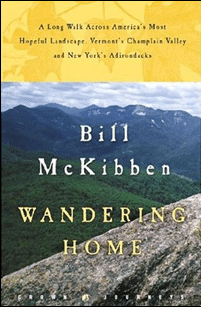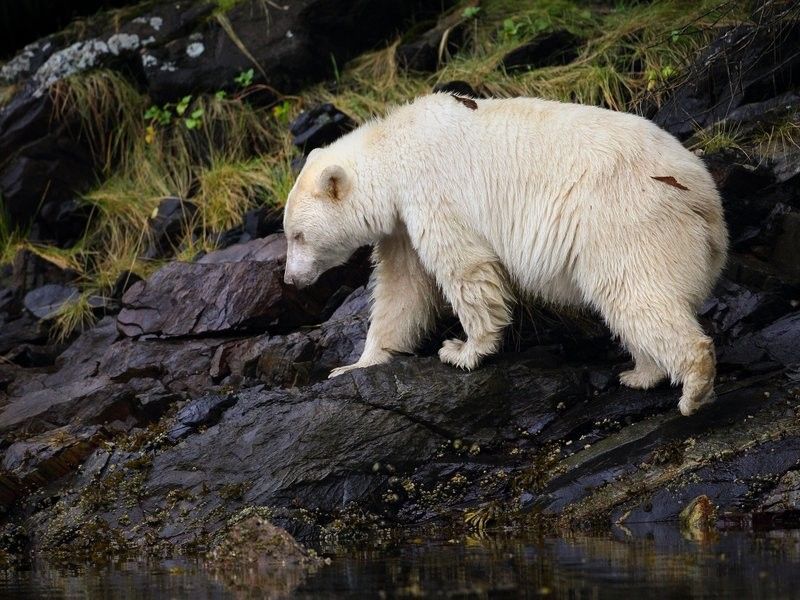
It’s easy to understand the global nature of the air we breathe, but let’s look at two of our planet’s other major ecosystems, oceans and forests, as well. Though individual countries may claim sovereignty over aspects of these resources based on geographical placement, the truth is they function as one borderless global ecosystem. Looking at even one aspect of the oceans, sea water circulation, demonstrates that it is clearly a global resource. What most of us perceive as five separate oceans, science now tells us is one World Ocean with interconnected parts.
Thermohaline circulation is the prime mover in driving the shallow and deep currents that sustain life below and at sea level around the globe. However, global warming is threatening to slow and even arrest thermohaline circulation by changing the properties of water such that the momentum for circulation is lost. According to Jack Matthews, former director of the Scottish Association for Marine Science, without thermohaline circulation, we could be looking at total stagnation in which the oceans could become deserts. Nothing would replenish surface nutrients and no oxygen would reach the ocean depths.
With climate change, those countries that depend on thermalhaline sources of warmth (eg: as Europe does with the Gulf Stream), could actually grow cooler. As the northern polar ice melts under the influence of global warming, it discharges freshwater, low in salt, into the salty North Atlantic. The freshwater thus dilutes the density of the Gulf Stream waters, which could eventually end the system. Less of the Gulf Stream’s normally heavy, cooled water would sink downwards as its passes Iceland to propel ocean circulation. The Gulf Stream has already begun to slow: 2005 measurement showed a 30% slowdown.
This is just one of the threats to the World Ocean and consequently our wellbeing. The ocean and its inhabitants also suffer from over-fishing, illegal fishing, pollution (chemicals, fuel, garbage), habitat loss and inadequate management, and climate change. While 13% of the world’s land areas are already protected, less than 1% of global marine areas are protected. This is in part due to unrelenting pressures from industrial fishing, Big Oil and other resource-extractive industries.
An estimated one-fifth of all fish taken from our oceans are caught illegally or without management of any kind. Illegal and unregulated fishing weakens efforts to control overfishing, threatens the health of fish stocks and other ocean life and undercuts the livelihoods of coastal communities. The coastal waters and the high seas of developing countries are both victim to companies that fish illegally and can operate internationally. No strong system yet exists among fishing nations and port states to share information or enforce regulations.
A number of international NGOs have arisen to spur action on the ocean among national governments and international organizations, such as the UN and its affiliates. The Global Forum on Oceans, Coasts, and Islands (Global Oceans Forum) promotes the implementation of international agreements related to oceans, coasts and small island developing states (SIDS). It first mobilized in 2001 to help governments place issues specific to the oceans and coastal regions on the agenda of the 2002 World Summit on Sustainable Development (WSSD) held in Johannesburg, South Africa. In preparing for the summit, they became all too aware that ocean-related issues were nowhere to be found on the summit’s initial agenda. The Global Forum thus put together the first Global Conference on Oceans, Coasts and Islands in December 2001 at UNESCO in Paris to lay the groundwork for bringing attention to ocean and coastal concerns at the summit. As a result, government delegates at the WSSD agreed on a sustainability action plan for oceans, coasts and islands, with specific targets and a timetable. These represented a new global consensus at the highest political level on the urgent need to take action to conserve healthy oceans and coasts.
Recommendations from the Global Forum and other organizations active in the sustainable oceans movement, such as the Pew Charitable Trust, the Ocean Conservancy, and others, could inform the basis for new international agreements and action plans.
They include:
- Use an ecosystem approach to protecting oceans, particularly in the management of fisheries and
biodiversity conservation.
- Establish an effective, transparent, interagency coordination mechanism on ocean and coastal issues within the UN system.
- Promote integrated coastal and ocean management at the national level and encourage and assist countries in developing ocean policies and mechanisms on integrated coastal management.
- Policies and programs at the regional and subregional levels that target (i) conservation and sustainable management of fishery resources, and (ii) implementation of integrated coastal area management plans, including infrastructure development. Implement the FAO or other plans to eliminate unreported and unregulated fishing and for the management of fishing capacity.
- Improve scientific understanding and assessment of the marine environment.
- Establish a regular process under the UN on global reporting and assessment of the state of the marine environment, including its socioeconomic aspects.
- Establish networks of marine reserves in coastal waters.
- Apply strong environmental standards to fish farms.
- Regulate the discharge of waste by cruise ships.
- Support the establishment of national policies to protect, maintain and restore the health of marine ecosystems.
The demands on coastal regions are multiplying quickly, expanding from traditional uses such as recreation and commercial fishing, to offshore oil drilling, fish farms and wind turbines for green energy. One solution is to zone coastal waters in the same way that we zone cities and public lands. Zoning would give all the competing interests the security of knowing that certain spaces are set aside for their use, and coastal management the opportunity to protect sensitive areas. Importantly, it gives conservation an equal seat at the planning table with the fishing and petroleum industries. In addition, creating a system of tradable rights and subleasing options would give groups more reasons to cooperate. For instance, a conservation zone could sell rights to fish in its zone in exchange for increased conservation practices in a fishing zone. Australia used a zoning plan three decades ago to help save its Great Barrier Reef.
This article is an excerpt from Lee’s award-winning book, “Awakening into Unity,” a comprehensive, richly illustrated compendium of the entire “Global Awakening” series, and a powerful healing balm for these troubled, turbulent times. View/borrow it at leading universities. Follow the source text for this article on pp 406-408, together with other similar topics in Chapter Nineteen, “Next Steps for the United Nations and the World.” Learn more about Lee Temple, “Awakening into Unity,” and the “Global Awakening” series here at award-winning www.primamundi.com.
© 2017 Lee Temple, Shining Golden Suns, LLC, All Rights Reserved.
PHOTO CAPTION: Divers remove a fishing net debris pile from a coral reef 30’ under the surface. The nets were swept together in the North Pacific Gyre in the Northwest Hawaiian Islands. Discarded plastic and other human refuse has surpassed fish by volume in the oceans today.
PHOTO CREDIT: Dr. Dwayne Meadows, NOAA/NMFS/OPR/Creative Commons Attribution 2.0
Generic license
PHOTO SOURCE: https://commons.wikimedia.org/wiki/File:Reef3038_-_Flickr_-_NOAA_Photo_Library.jpg





